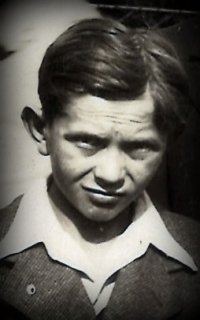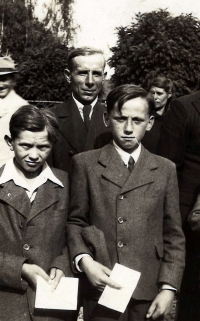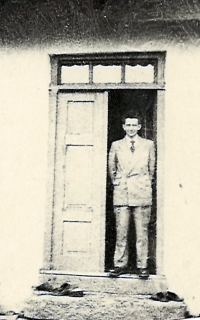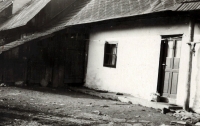It was all nice until the war

Stáhnout obrázek
František Dvořák was born on 20 May 1932. He spent his childhood and adolescence in Příčovy near Sedlčany, a village that became part of an SS military training area during World War II. Its establishment, unique in the whole of the Great German Empire and all the countries occupied by the Nazis, was decided at the beginning of the war. In the first phase, the Germans occupied the area of Benešovsko, and in the following phase Sedlčansko. Most of the original Czech inhabitants had to be evicted, leaving only a handful of those whom the Nazis needed for work. For this reason, even František‘s family did not have to leave their home; his mother worked as an agricultural worker on a farm, the so-called SS-Hof, which was used to support the German soldiers. František‘s father was a worker in a quarry, from where building stone was used to build military buildings, as well as labour and concentration camps. These were mainly for prisoners of war and Nazi opponents, but also for punished Wehrmacht soldiers and members of the SS. František Dvořák recalls the forced coexistence with German soldiers and their hasty departure at the end of the war and the arrival of the Red Army. After the war, he trained as a bricklayer and worked in the trade all his life. During his military service in Slovakia, he met his life partner, with whom he raised two daughters. František Dvořák died at the end of 2022.



